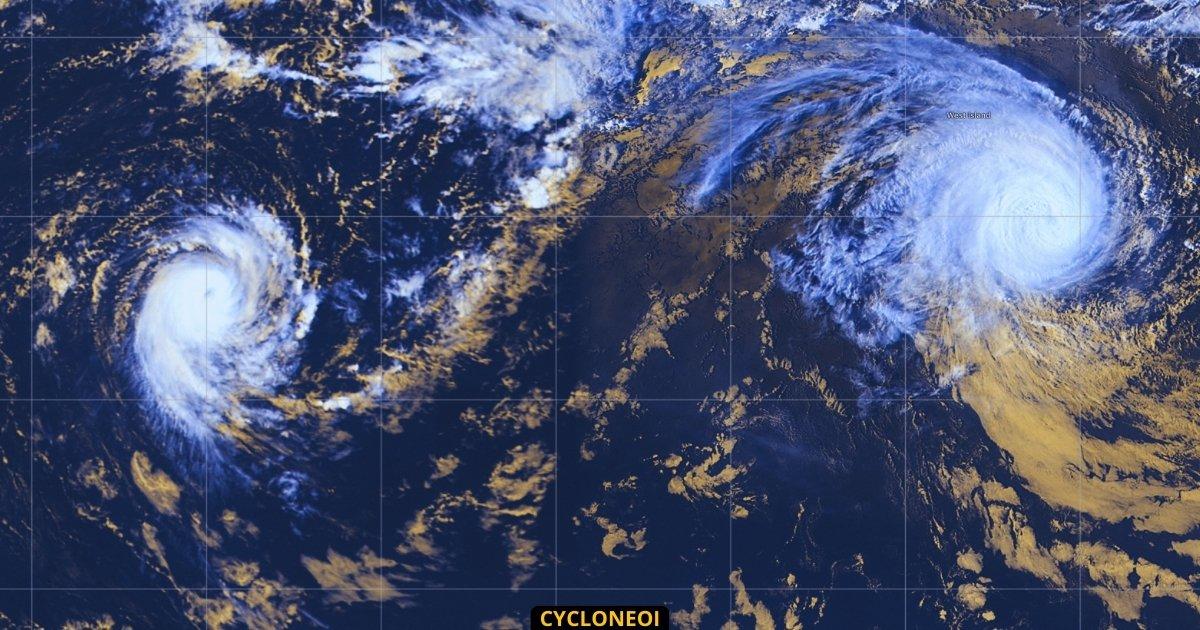Congrats Freddy, now please leave.

Mozambique was lashed by cyclone Idai (pictured) back in 2019; now it’s battling with what could well be the longest cyclone on record. Image credit: Lavizzara / Shutterstock.com
Cyclone Freddy first came into the world on February 6 and has since been causing carnage across the Indian Ocean, making landfall in Madagascar and Mozambique. The deadly tropical storm has already broken some grim records, including being the only storm in the Southern Hemisphere ever to have intensified more than three times, and is on track to become the longest cyclone ever recorded.
The storm first made ground in Madagascar, near Mananjary, after travelling 6,400 kilometers (4,000 miles) across the Indian Ocean and now threatens multiple African nations. At its peaks it’s reached a Category 5 hurricane status on the Saffir Simpson Hurricane Wind Scale, reaching top speeds of 257 kilometers per hour (160 miles per hour).
This is the first time experts have observed a storm taking the peculiar route Freddy’s tracked across the Indian Ocean, crossing its entirety from east to west, and the World Meteorological Organization (WMO) believes that Freddy is on track to becoming the longest-lived tropical cyclone in the Southern Hemisphere. Ironically, declaring the record broken can’t be done until the storm has died out.
"The WMO Weather and Climate Extremes Archive are currently assembling a blue-ribbon international committee of scientists,” said Prof. Randall Cerveny, WMO Weather and Climate Extremes rapporteur, in a statement. “Once the tropical cyclone has dissipated, these experts will begin a detailed examination of the raw data to determine if Freddy has indeed established a record as the longest-duration tropical cyclone on record.”
The key question that remains in declaring the record is whether or not the intermittent dips we’ve seen in cyclone Freddy have been significant enough to strip Freddy of the title. The competition is Typhoon John, a tropical cyclone that became the longest-lasting (at 31 days) and farthest-travelling cyclone ever observed. It ripped through Hawaii, Johnston Island and Alaska back in 1994.
However, Freddy has already busted some harrowing world records for storm activity.
“Freddy does hold the record for all-time accumulated cyclone energy (ACE), a measure of the storm’s strength over time, for the Southern Hemisphere, as well as globally, since Cyclone Ioke in 2006,” said the National Environmental Satellite Data and Information Service.
“Additionally, Freddy was the first tropical cyclone in the Southern Hemisphere to undergo four separate rounds of rapid intensification, which occurred due to repeated bursts of wind shear that weakened the storm and then subsided.”
According to The Washington Post, only three storms in the Northern Hemisphere have undergone four surges in intensification during their weeks-long lifetimes, including Norman 2018, Emily 2005, and John 1994. These events are characterized by an increase in wind speeds of around 56 kilometers per hour (35 miles per hour) or more in a day.
The WMO are urging that early warnings have been key to minimizing the loss to human life caused by the catastrophic storm.
"Freddy is having a major socio-economic and humanitarian impact on affected communities. The death toll has been limited by accurate forecasts and early warnings, and coordinated disaster risk reduction action on the ground - although even one casualty is one too many," said Dr Johan Stander, WMO Services Director, in a statement.
"This once again underlines the importance of the UN Early Warnings for All initiative to ensure that everyone is protected in the next five years. WMO is committed to working with our partners to achieve this and tackle extreme weather and climate change related risks - one of the biggest challenges of our times.”
Find updates on Tropical Cyclone Freddy via ReliefWeb.




Recommended Comments
There are no comments to display.
Join the conversation
You can post now and register later. If you have an account, sign in now to post with your account.
Note: Your post will require moderator approval before it will be visible.